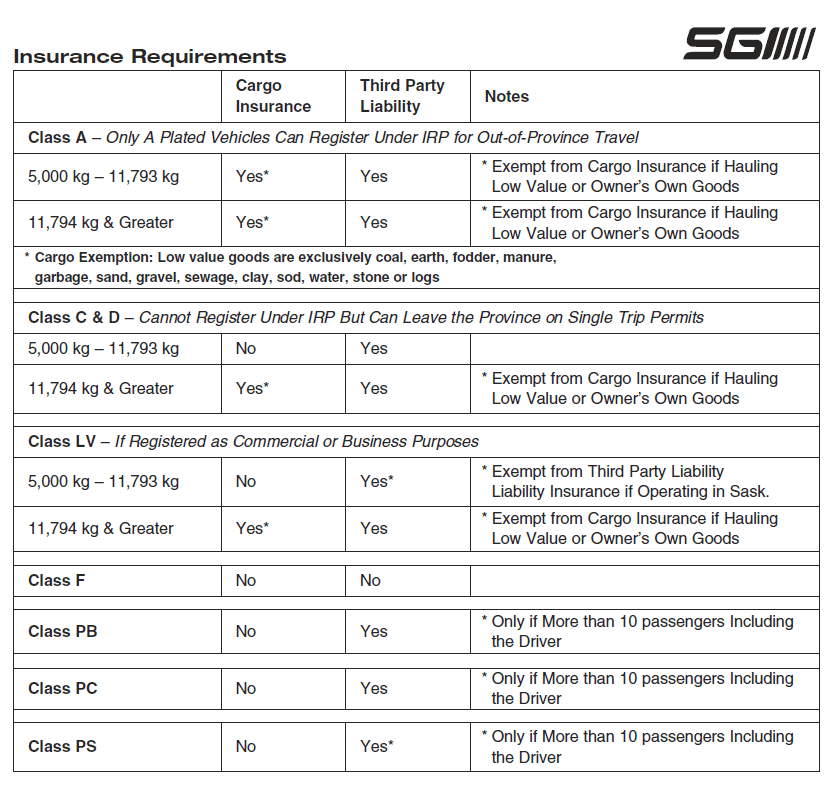There are many truckers on the road each day. They all have a different destinations, objectives, commodities and drivers. There are many variables when it comes to commercial hauling and we want to let you know what needs to be looked at when insuring your rig and your fleet.
So what do I need to know when registering my commercial truck and trailers?
- First, you need to license your vehicles. The way your truck is licensed depends on the commodities you haul and the weight of your load. If you haul a B-Train of Grain or you deliver fuel to stations, this will change the classification of your truck. The total weight of your truck, trailer and load (combined) will be required when registering and that weight will need to be added onto the truck portion of the registration.
- How much weight you are qualified to haul will depend on the trailers you have, the tire size as well as the axel spread of both your truck and your trailers. So you will need to do some research before you come in to register your unit.
- With this information, along with a bill of sale, we can set up your vehicle registrations. However, if your truck is hauling out of province, there will be additional requirements that will need to be met, this is handled by the IRP department.
- The IRP department has an approval process that you will need to follow. This requires a list of vehicles, drivers, commodities, weights, jurisdictions and mileage in those jurisdictions. They will want to know experience of the company and drivers and any details related to the operation. Once approved, you can submit your vehicles in for a quote request. This rate is based on the amount of mileage in all jurisdictions, the risk and weight of the load, and the claims experience of the company/drivers. We can help you through this process and make sure your vehicles are properly registered.
- Three specific requirements that a carrier needs to adhere to under the IRP is:
- Maintain an established place of business
- Distance accrued by the fleet
- Keeping maintenance and operational records available
- Once you have registered your vehicle with SGI and/or the IRP department, we can work on the commercial auto insurance policy.
What is the minimum mandatory insurance I need to start hauling?
- The NSC (National Safety Code) is a code of minimum performance standards for the safe operation of commercial vehicles for all jurisdictions in Canada. According to the NSC, all individuals holding a Certificate of Safety Fitness are required to maintain extension insurance.
Third Party Liability
- $1,000,000 – All carriers transporting freight except dangerous goods
- $2,000,000 – All carriers transporting dangerous goods
Buses
- Passenger Capacity (15 or less) – $1,000,000
- Passenger Capacity (16 or more) – $3,000,000
This is the basic information to get your commercial auto on the road. There is many more coverages that may be required by the NSC or coverages you may desire to make sure you have the best coverage available. We will touch on the extension auto policy in the next “Chronicle of Commercial Auto Insurance.”
